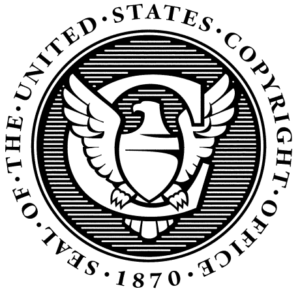Images created by AI cannot be copyright protected, author Kristina Kashtanova recently found out the hard way.

The US Copyright Office had ruled in favor of Kristina Kashtanova, a Russian–born artist living in the US, in a copyright infringement case she brought against a company that used her artwork without her permission. They used her artwork in a series of advertisements without getting her permission or giving her compensation. The Copyright Office found that they’d infringed upon her copyright and ordered them to pay her damages. The ruling showed that the US Copyright Office takes copyright infringement seriously and will protect the rights of artists.
The US Copyright Office rescinded their decsion once they found out that the images in the book had been AI generated. They decided that images created by AI cannot be copyright protected. There is debate over whether this is good or bad.

Images created by AI cannot be copyright protected, but
Images created by AI cannot be copyright protected, but the text the author wrote is still under copyright protection. To be clear: the decision only applies to the images the author created using the assistance of AI technology, not to the words she wrote. The text belongs to the author and is covered under copyright law as usual.
The US Copyright Office makes this clear in their letter to the author’s lawyer: “We conclude that Ms. Kashtanova is the author of the Work’s text as well as the selection, coordination, and arrangement of the Work’s written and visual elements. That authorship is protected by copyright. However, as discussed below, the images in the Work that were generated by the Midjourney technology are not the product of human authorship. Because the current
registration for the Work does not disclaim its Midjourney-generated content, we intend to cancel the original certificate issued to Ms. Kashtanova and issue a new one covering only the expressive material that she created.”
AI is changing the world
In recent years, artificial intelligence (AI) has been making great strides in the world of art, creating some works that are indistinguishable from those created by humans—and some that are grotesque, unusable frights.
The US Copyright Office stated that the copyright law does not recognize works created by machines or computer programs as original works of authorship, which is what copyright law is intended to protect. This means that any artwork or content created by AI is not copyright protected and can be used by anyone without penalty.
The US Copyright Office’s decision to refuse to protect AI–generated artwork and content under copyright law is seen by many as a major blow to the AI art industry. AI art is becoming increasingly popular, and many artists are relying on the sale of their AI–generated works to make a living. Without the protection of copyright law, AI artists are left vulnerable to having their works copied and used without their permission or compensation. Many find this to be theft.
As found in this Legal Sidebar by the Congressional Research Service talking about AI and copyright law, “A recent lawsuit has challenged the human-authorship requirement in the context of works purportedly ‘authored’ by AI. In June 2022, Stephen Thaler sued the Copyright Office for denying an application to register a visual artwork that he claims was authored by an AI program called the Creativity Machine. Dr. Thaler asserts the picture was created ‘autonomously by machine,’ and he argues that human authorship is not required by the Copyright Act. The lawsuit is pending.”
Copyright law needs to catch up
All of this is a reminder that the law is still catching up with advancements in technology. As AI tech continues to improve, it is likely that copyright law will have to improve. For now, images created by AI cannot be copyright protected. But times and technology change.